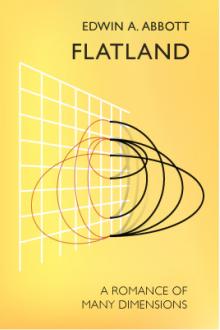Genre Literary Collections. Page - 31

adand do that, I am giving you express permission right now. Enjoyyourself.
You can put the book on disks and give the disks away, aslong as you don't take any money for it.
But this book is not public domain. You can't copyrightit in your own name. I own the copyright. Attempts to piratethis book and make money from selling it may involve you in aserious litigative snarl. Believe me, for the pittance you mightwring out of such an action, it's really not worth it. This bookdon't "belong" to you. In an odd but very genuine way, I feel itdoesn't "belong" to me, either. It's a book about the people ofcyberspace, and distributing it in this way is the best way Iknow to actually make this information available, freely andeasily, to all the people of cyberspace--including people faroutside the borders of the United States, who otherwise may neverhave a chance to see any edition of the book, and who may perhapslearn something useful from this strange story of distant,obscure, but por

s can bemade, what is their order of precedence, which can be debated, what istheir effect, etc., the common law of the land is settled by thepractice of the U. S. House of Representatives, and not by that of theEnglish Parliament, the U. S. Senate, or any other body.
While in extreme cases there is no difficulty in deciding the questionas to whether the practice of Congress determines the commonparliamentary law, yet between these extremes there must necessarily bea large number of doubtful cases upon which there would be greatdifference of opinion, and to avoid the serious difficulties alwaysarising from a lack of definiteness in the law, every deliberativeassembly should imitate our legislative bodies in adopting Rules ofOrder for the conduct of their business.* [Where the practice ofCongress differs from that of Parliament upon a material point, thecommon law of this country follows the practice of Congress. Thus inevery American deliberative assembly having no rules for conductingbusin

estimates, and changes the relative sizes of many ofthe world's economies.
Concise descriptions of the major religions mentioned in the Factbookhave been added to the Notes and Definitions. France 's redesignationof some of its overseas possessions caused the five former Indian Oceanisland possessions making up Iles Eparses to be incorporated into theFrench Southern and Antarctic Lands, while two new Caribbean entities,St. Barthelemy and St. Martin, were created.
Revision of some individual country maps, first introduced in the 2001edition, is continued in this edition. The revised maps includeelevation extremes and a partial geographic grid. Several regional mapshave also been updated to reflect boundary changes and place namespelling changes.
Abbreviations: This information is included in Appendix A:Abbreviations, which includes all abbreviations and acronyms used inthe Factbook, with their expansions.
Acronyms: An acronym is an abbreviation coined from the initial letterof each

true Dimension,although I cannot point out to you its direction, nor can youpossibly measure it.' What would you say to such a visitor?Would not you have him locked up? Well, that is my fate:and it is as natural for us Flatlanders to lock up a Squarefor preaching the Third Dimension, as it is for you Spacelandersto lock up a Cube for preaching the Fourth. Alas, how stronga family likeness runs through blind and persecuting humanityin all Dimensions! Points, Lines, Squares, Cubes, Extra-Cubes --we are all liable to the same errors, all alike the Slavesof our respective Dimensional prejudices, as one of yourSpaceland poets has said --
'One touch of Nature makes all worlds akin'."
[Note: The Author desires me to add, that the misconception of someof his critics on this matter has induced him to insert in hisdialogue with the Sphere, certain remarks which have a bearingon the point in question, and which he had previously omittedas being tedious and unnecessary.]
On this point th

That night, when supper was finished and they sat on the oblong box and pulled at their pipes, the circle of gleaming eyes drew in even closer than before.
"I wisht they'd spring up a bunch of moose or something, an' go away an' leave us alone," Bill said.
Henry grunted with an intonation that was not all sympathy, and for a quarter of an hour they sat on in silence, Henry staring at the fire, and Bill at the circle of eyes that burned in the darkness just beyond the firelight.
"I wisht we was pullin' into McGurry right now," he began again.
"Shut up your wishin' and your croakin'," Henry burst out angrily. "Your stomach's sour. That's what's ailin' you. Swallow a spoonful of sody, an' you'll sweeten up wonderful an' be more pleasant company."
In the morning Henry was aroused by fervid blasphemy that proceeded from the mouth of Bill. Henry propped himself up on an elbow and looked to see his comrade standing among the dogs beside the replenished fire, his a

ting that all philosophers, in so far as they have beendogmatists, have failed to understand women--that the terribleseriousness and clumsy importunity with which they have usuallypaid their addresses to Truth, have been unskilled and unseemlymethods for winning a woman? Certainly she has never allowedherself to be won; and at present every kind of dogma stands withsad and discouraged mien--IF, indeed, it stands at all! For thereare scoffers who maintain that it has fallen, that all dogma lieson the ground--nay more, that it is at its last gasp. But tospeak seriously, there are good grounds for hoping that alldogmatizing in philosophy, whatever solemn, whatever conclusiveand decided airs it has assumed, may have been only a noblepuerilism and tyronism; and probably the time is at hand when itwill be once and again understood WHAT has actually sufficed forthe basis of such imposing and absolute philosophical edifices asthe dogmatists have hitherto reared: perhaps some popularsuperstition of imm

that differences of opinion arescarcely likely to arise as to its applicability in practice.
*** A refinement and modification of these views does not becomenecessary until we come to deal with the general theory of relativity,treated in the second part of this book.
SPACE AND TIME IN CLASSICAL MECHANICS
The purpose of mechanics is to describe how bodies change theirposition in space with "time." I should load my conscience with gravesins against the sacred spirit of lucidity were I to formulate theaims of mechanics in this way, without serious reflection and detailedexplanations. Let us proceed to disclose these sins.
It is not clear what is to be understood here by "position" and"space." I stand at the window of a railway carriage which istravelling uniformly, and drop a stone on the embankment, withoutthrowing it. Then, disregarding the influence of the air resistance, Isee the stone descend in a straight line. A pedestrian who observesthe misdeed from the footpath notices th

I cannot tell; but conclude theywere all lost. For my own part, I swam as fortune directed me, andwas pushed forward by wind and tide. I often let my legs drop, andcould feel no bottom; but when I was almost gone, and able tostruggle no longer, I found myself within my depth; and by thistime the storm was much abated. The declivity was so small, that Iwalked near a mile before I got to the shore, which I conjecturedwas about eight o'clock in the evening. I then advanced forwardnear half a mile, but could not discover any sign of houses orinhabitants; at least I was in so weak a condition, that I did notobserve them. I was extremely tired, and with that, and the heatof the weather, and about half a pint of brandy that I drank as Ileft the ship, I found myself much inclined to sleep. I lay downon the grass, which was very short and soft, where I slept sounderthan ever I remembered to have done in my life, and, as I reckoned,about nine hours; for when I awaked, it was just day-light. Iatte

suddenly changed and accomplished wonders. "I lost my opportunity," says one. That may be true, but by sheer force of will, we can find a way to bring us another opportunity. There is no truth in the saying that opportunity knocks at our door but once in a lifetime. The fact is, opportunity never seeks us; we must seek it. What usually turns out to be one man's opportunity, was another man's loss. In this day one man's brain is matched against another's. It is often the quickness of brain action that determines the result. One man thinks "I will do it," but while he procrastinates the other goes ahead and does the work. They both have the same opportunity. The one will complain of his lost chance. But it should teach him a lesson, and it will, if he is seeking the path that leads to success.
Many persons read good books, but say they do not get much good out of them. They do not realize that all any book or any lesson course can do is to awaken them to their possibilities; to stimulate them to use thei

managers of big city shops once lifted the rule prescribing certain modes for their female working staffs--if they should give their women clerks a free hand in choosing their own wardrobes for store hours--well, you know how women are!
Nevertheless and to the contrary notwithstanding, I will admit while I am on this phase of my topic that there likewise is something to be said in dispraise of my own sex too. In the other--and better half of this literary double sketch-team act, my admired and talented friend, Mrs. Mary Roberts Rinehart, cites chapter and verse to prove the unaccountable vagaries of some men in the matter of dress. There she made but one mistake--a mistake of under-estimation. She mentioned specifically some men; she should have included all men.
The only imaginable reason why any rational he-biped of adult age clings to the habiliments ordained for him by the custom and the tailors of this generation, is because he is used to them. A man can stand anything once he gets used to